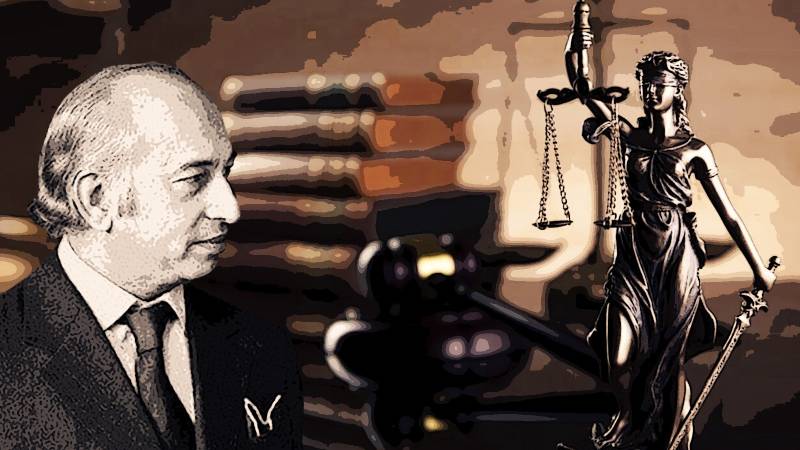
The law is often defined and understood as a system of rules issuing commands and punishing those who violate these commands instead of providing a wider purpose of determining and protecting the rights of the public, ensuring their participation in the decision-making process to make any command legitimate.
Law, especially criminal law, has another very important function: to present an accurate historical account of the victims and culprits. This is recognised under international criminal law and implemented by international tribunals set up after the ethnic cleansing of Bosnian Muslims and the genocide in Rwanda.
Another purpose of the law, which is undermined but upheld under transitional justice, is to heal a polity while correcting historical records. This was successfully demonstrated by the South African Truth and Reconciliation Commission, which fostered forgiveness by enabling the victims of the Apartheid regime to testify publicly and perpetrators to confess and receive amnesty.
The US abolished slavery but was haunted by the US Supreme Court's judgment in the Dred Scott case, which refused to recognise the enslaved people as US citizens and, therefore, not entitled to any rights and protections from the federal government or the courts.
In January 2023, the Netherlands became the first Western nation to apologise for slavery. In 2022, it also offered an apology to Indonesia, after a historical review found that it used violence to regain control of its former colony after the Second World War. The Caribbean countries have created a 10-point plan for reparatory justice for Europe, which includes a formal apology.
It has been held by the superior judiciary that the party cannot be made to suffer from an act or omission on the part of the court
Under Islamic Law, the Prophet (Peace Be Upon Him) forgave everyone after the victory of Makkah so that the people of the holy city could unite, forgive, heal and move on.
In October 2023, King Charles III acknowledged the Britishers committing torture during the Mau Mau rebellion in Kenya. In 2013, former British foreign secretary William Hague had announced €23.5 million in compensation for Kenyan victims. Even Pakistan, in 2002, then-President, General Pervez Musharraf used the expression of 'regret' for the events of 1971.
In 1997, however, China denied a Hong Kong newspaper report that Deng Xiaoping left a will apologising for the 1989 incident.
The book, Transitional Justice and the Former Soviet Union: Reviewing the Past, Looking Toward the Future, highlighted Soviet Union's last president, Gorbachev's appeal to honestly accept the past and present, leading to 16 countries — which were part of the former Soviet Union and Serbia — adopting their approaches to the transitional justice, as they all had experienced collectivisation under communism, purges and deportation under Stalin, and Nazi occupations.
The Supreme Court of Pakistan has recently started hearing the presidential reference filed in April 2011 against the death sentence awarded to the former prime minister of Pakistan, Zulfikar Ali Bhutto, who belonged to the Sindh province. Justice Syed Mansoor Ali Shah has questioned the maintainability of the presidential reference, asking questions about the court reopening settled judgements by invoking article 186 of the 1973 Constitution, even as the review petitions were finally determined.
This view, however, will invalidate the Asma Jilani case (PLD 1972 SC 139) judgment, which overturned the precedent laid down in the Dosso case (PLD 1958 SC 533) of legitimising the martial law of 1958 and abrogating Pakistan's first Constitution of 1956. It was argued by Justice Muhammad Munir, author of the Dosso case, in his book Highways & Bye-Ways of Life, that the matter was time-barred and, therefore, could not be revisited. However, the Asma Jilani verdict allows the court to revisit past incorrect views.
About opening the floodgates for review of past and settled cases, I believe the court and the government should avail every opportunity to correct the historical record. In November 2023, German President Frank-Walter Steinmeier apologised for the Tanzanian people's killings under Germany's colonial rule. He then apologised for the crimes of his country in the Second World War on the anniversary of the Warsaw Ghetto Uprising. In 2012, German Medical Association apologised for the atrocities committed by German physicians under Nazi rule.
Even otherwise, the court can revisit its previous incorrect view because an illegal order is treated as void ab initio (having no legal effect from inception) under the law. It has been held by the superior judiciary that the party cannot be made to suffer from an act or omission on the part of the court.
When Nazi officials were prosecuted for the Holocaust after the Second World War, even though genocide was declared a crime then, such a heinous and wrongful act could not go unrecognised, unanswered and unpunished.
The court, thus, cannot allow a wrong to continue, especially if it was committed by the court itself, and the present presidential reference has provided the judiciary with a historic opportunity to make amends for past wrongs, correct the historical record and allow Sindh to heal, forgive, and transition.

